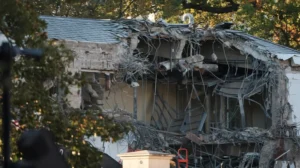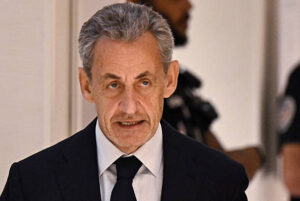Hamas said Haniyeh was killed in an Israeli strike inside Iran where he was attending the swearing-in ceremony of the country’s new president, Masoud Pezeshkian. Iran’s Islamic Revolutionary Guard Corps (IRGC) said Haniyeh and a bodyguard were killed after their residence in Tehran was hit.
Analysts said that the assassination sent a clear message to Iran and its allies: they are not beyond Israel’s reach, even in Tehran. It also highlighted the extent of Israel’s covert capabilities within Iran.
Israel has not claimed responsibility for the killing of Haniyeh, and US officials told Al Arabiya English that they were not involved.
Farzan Sabet, a senior research associate at the Geneva Graduate Institute, described Haniyeh’s assassination as a “massive failure of Iranian security,” pointing to several factors behind Iran’s vulnerability.
“Iran’s security-intelligence vulnerability likely derives from several factors, including the dire economic conditions in the country, social unrest and the system’s battered political legitimacy, and a security apparatus that is not optimally designed to counter foreign threats nor able to attract the most talented and trustworthy personnel,” Sabet told Al Arabiya English.
People hold Palestinian flags as they attend an anti-Israel gathering following the killing of Hamas leader Ismail Haniyeh, in Tehran, Iran, July 31, 2024. (Via Reuters)
He said this incident underscores the regime’s choice to allocate significant security-intelligence resources toward surveilling and suppressing its own citizens, seemingly at the expense of addressing external threats.
Jason Brodsky, policy director at United Against Nuclear Iran (UANI), described the assassination as a “huge embarrassment” for Iran and a demonstration of Israel’s “intelligence and military superiority.”
Haniyeh’s assassination occurred just hours after Israel targeted senior Hezbollah commander Fuad Shukr in a Hezbollah stronghold in Beirut, signaling that even Iran’s most powerful proxy can be swiftly infiltrated.
Hezbollah confirmed Shukr’s death on Wednesday after Israel publicly claimed the attack.
“Killing someone of Haniyeh’s stature is relatively unprecedented, and killing him hours after Iran’s presidential inauguration sends a clear signal that Israel has both the capability and willingness to target high-value figures anytime, anywhere,” Gregory Brew, a senior analyst at Eurasia Group, told Al Arabiya English.
Sabet observed that this incident differed from past Israeli assassinations on Iranian soil, which typically targeted military figures or nuclear scientists, suggesting that Iran might not have anticipated such a bold move against a political figure like Haniyeh. “The Iranians again failed to anticipate the boldness and audacity of the Israelis, so this was likely as much a failure of imagination as it was a security-intelligence defeat.”
Potential Iranian response
In response to the assassination, Iran’s Supreme Leader Ali Khamenei vowed “harsh punishment” and said that avenging Haniyeh’s death was Iran’s duty, given that it took place on Iranian soil.
Analysts speculated that Iran could respond directly, potentially mirroring its launch of hundreds of drones and missiles toward Israeli territory in April after a deadly strike on Iran’s consulate in Damascus.
People attend an anti-Israel gathering following the killing of Hamas leader Ismail Haniyeh, in Tehran, Iran, July 31, 2024. (Via Reuters)
Other possible actions could involve targeting Israeli nationals globally, escalating nuclear activities, disrupting shipping lanes, or attacking Israeli diplomatic sites, Brodsky told Al Arabiya English.
Despite these possibilities, most observers agree that Tehran is unlikely to pursue a full-scale war with Israel or the US, recognizing that the Islamic Republic cannot afford such a conflict given its internal vulnerabilities and military inferiority.
Sabet said that Haniyeh’s killing in Tehran could harm Iran’s credibility with its regional allies, putting pressure on Tehran to retaliate in some way despite its desire to avoid being drawn further into the Israel-Hamas war.
Analysts suggest that given the timing of the assassination – occurring just hours after the targeting of a top Hezbollah commander – it is likely to prompt a coordinated response from Iran and its allied militias.
“Given the nature of the Israeli attack, the ultimate Iranian response will likely include strikes from both Iran itself and other Axis of Resistance network members,” Sabet said.






